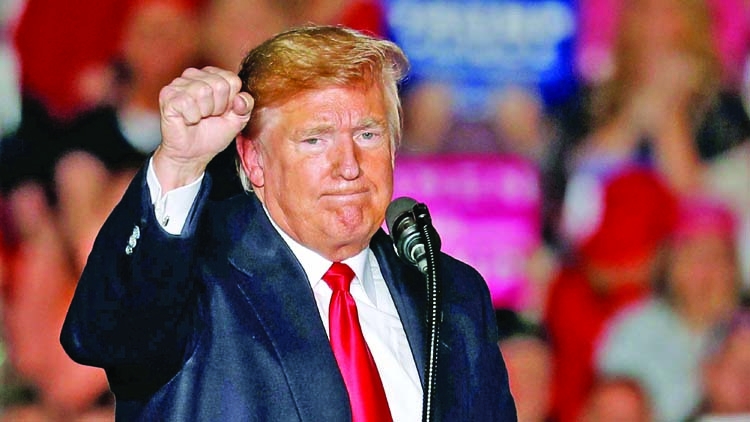'Trump will secure border at any cost'

US President Donald Trump is again considering invoking emergency powers to build his proposed wall on the United States-Mexico border without congressional approval, roiling the latest bipartisan negotiations over immigration with the renewed threat of unilateral executive action and further dividing Republicans already reeling from the fallout of the shutdown.
"The President's commitment is to defend the nation, and he will do it either with or without Congress," acting White House Chief of Staff Mick Mulvaney said on Fox News Sunday. The partial shutdown, which was the longest in US history, ended last Friday with Trump agreeing to temporarily reopen the government without any money for a wall.
Inside the West Wing over the weekend, Trump told advisers that declaring a national emergency may be his best option now as he scrambles to assert himself in a divided government and to secure wall funding, according to four people involved in the discussions who were not authorized to speak publicly.
One White House official described Trump's decision to reopen the government as "clearing the deck" for executive action rather than a retreat. And a longtime confidant said Trump has grown increasingly frustrated by news coverage of his concession to Democrats and has been encouraged by conservative allies to escalate the fight. A bipartisan, bicameral congressional committee has been charged with brokering an agreement on border security as part of a deal to keep the government open past Feb 15, and a stalemate could trigger another shutdown.
Trump's consideration of such action comes as conservative commentators lashed out at him and said he gave in to top Democrats last Friday, and as special counsel Robert Mueller's probe into Russian interference in the 2016 election has moved deeper into Trump's inner circle, raising questions about the future of his presidency.
Some Republicans on Sunday waved Trump off, potentially signing a declaration after 35 days of enduring criticism as he held firm. Public opinion polls show that the public blames Trump and Republicans more than Democrats for the shutdown.
Republican Senator Marco Rubio called the prospect of a national emergency declaration a "terrible idea", reflecting widespread conservative unease about using executive powers in sweeping ways to achieve political ends, a tactic they have long criticized Democratic presidents of employing.
"It's just not a good precedent to set in terms of action. It doesn't mean that I don't want border security. I do. I just think that's the wrong way to achieve it," Rubio said on NBC's Meet The Press.
Republican Senator Roy Blunt agreed. "I happen to agree with the President on barriers at the border and border security as an important first step, but there might be a future president that I don't agree with that thinks something else is an emergency," he said on Fox News Sunday, adding that he hopes "the president doesn't have to go there".
Other Republicans said the GOP appetite for using emergency powers was stronger than the remarks of lawmakers on television suggested, because of widespread thought that the party's base would applaud Trump for being bold.
"He's certainly going to have Democratic opposition for partisan reasons and Republicans opposed based on the precedent it sets," former White House legislative director Marc Short said in an interview. "But there is one thing some Republicans say to the media, and then there is what they say quietly to each other when the camera is not on: 'I sure wish he'd do it.'"
Several White House officials said privately on Sunday that Trump has argued that a national emergency declaration in the coming weeks could pressure Congress to include wall funding as part of a broader legislative package next month and could signal to the GOP's core voters that the President is going to extremes to secure funding for his campaign's biggest pledge.
